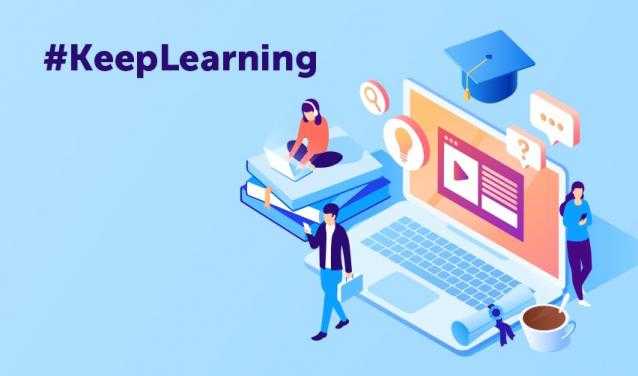Home>Keep Learning: Sciences Po's Transition Online

24.08.2020
Keep Learning: Sciences Po's Transition Online
14,000 students from all over the world and on all continents, 700 classes per day: going online due to the current pandemic has posed an unprecedented and considerable challenge for Sciences Po. It has also been an opportunity to invent new ways to teach and learn. Bénédicte Durand, Vice President of Academic Affairs, recounts the efforts made by the Sciences Po teams to successfully carry out this transition.
All Sciences Po classes moved fully online as of Monday, March 23. How did Sciences Po manage to get 14,000 students and 700 classes online in one week?
Let’s just say, we didn’t get much sleep! Once we decided that the rest of the semester would be all online, we defined three guiding principles: first, preserve the quality of education, and therefore the quality of the degree. Second, lighten the course load to allow students to reorganise their time and school/life balance, taking into consideration the time they would need to readjust and get settled. Finally, reinforce individual follow-up and communication with all our students. Then, we chose a platform that was best suited to our needs: the Zoom video conferencing platform, which we had already been testing for a while. Through using Zoom ourselves, we were able to see what could be done using the platform, and what should be accomplished off it.
At Sciences Po, there are many different programmes, from undergraduate level to doctorate level, and the types of classes are varied, from lectures to workshops or "conférences de méthode": how did you manage to get all these different types of courses online?
We had to boil the educational model down to the essentials, namely the fundamentals of our teaching, but we kept 80% of classes! Considering the fact that our students are scattered across all the time zones on the planet, we quickly realised the importance of recording lessons and providing a variety of teaching materials. The pedagogy we are offering today is partly via Zoom but also utilising other types of tools - Moodle, email, document dropboxes - in order to provide students with as many options as possible in case they have limited internet access or other connectivity issues. Hence the need to devote a week to build this new framework...
What existing tools did you use?
We wanted to get the whole community on board, from total beginners to tech-savvy users who are familiar with these tools. Of course, some of our professors are already very innovative in using digital technology in their syllabi. But we wanted to build a framework that was accessible for everyone, including those who didn’t know their way around these resources. This is an opportunity to bring a shared digital culture to everyone. This transition should also bring these tools into our everyday lives in the long term: our world is in great need of reinventing itself to be more sustainable, by decreasing mobility yet preserving contact.
Sciences Po has six campuses outside of Paris: how is the system deployed there and with what specificities? Could there be shared courses amongst all of the Sciences Po campuses?
We haven't yet thought about sharing courses across campuses - for the time being we especially want to maintain the sense of community within the student bodies. The students of each campus know and trust each other; their ties to each other are built on solidarity. We didn’t want to "disturb" this in any way. On the other hand, the pedagogical teams of the different campuses and Graduate Schools were immediately brought on board to co-construct this new educational offer at all levels.
How do you support teachers and students so that they engage in these new approaches?
We created Zoom accounts for all of our teachers and pedagogical managers, and we sent them very complete tutorials. We also offer training sessions twice a day to accompany them. Of course it was necessary to adapt our traditional teaching format: two hours of lecturing on video is too long. But each teacher is free to adapt his or her class with all the necessary flexibility, by mixing lecturing, discussions, Q&A sessions, etc. Everyone is discovering these new tools at the same time: we’re taking advantage of this situation to build a place of educational freedom. I am convinced that this will be extremely beneficial for the future.
Will this crisis have lasting effects on Sciences Po’s way of teaching?
Yes, I don’t think that we will be able to just go back to the traditional format, as if nothing had happened. This crisis is also an opportunity for teachers and students to reaffirm their will to continue to learn and transmit knowledge, whatever the cost. Despite the difficulties that come with transitioning, there is an incredible energy. Students and teachers will form new pathways to achieve their goals, I am sure!
Related links
- Remote Learning Toolkit for Students
- Remote Learning Toolkit for Teachers
- MOOCS from Sciences Po
- Student Life During Confinement
Subscribe to News from Sciences Po